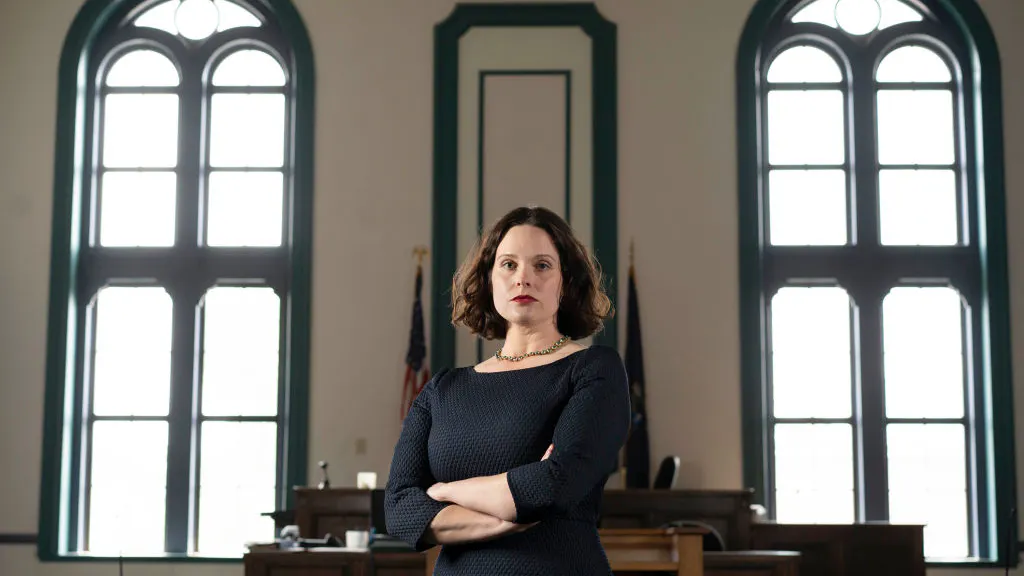A Maine prosecutor has vowed to prosecute people accused of sexual assault even if there is not enough evidence to prove they committed the crime.
WGME reported District Attorney Natasha Irving said she would try to reform the legal system by prosecuting cases that previously had been deemed “too hard to prove.” She said prosecutors shouldn’t decline to take on such cases because “that response is very damaging to a survivor,” suggesting she believes every accuser is a “survivor.”
Irving serves Knox, Lincoln, Sagadahoc, and Waldo counties in Maine.
Irving also repeated the misleading statistic that just 2% to 8% of sexual assault accusations are false. The number, as I have written numerous times, refers only to cases that have been proven false. The real number is unknown. Using the same logic employed by Irving, one could say just 3% to 5% of rape accusations are true, since that’s how many go to trial and result in a guilty finding.
Irving went on to explain the two criteria she will use to bring forward rape allegations. 1. Is the allegation credible? (Judging from Irving’s statements it’s hard to see her believing many allegations aren’t credible) and 2. Is the accuser (WGME predictably calls them a “victim”) willing to go forward with the case and potentially testify?
That’s it. That’s all it will take for Irving to drag someone through a lengthy court battle even if it’s obvious they will be found not guilty. As criminal defense attorney Scott Greenfield wrote on his blog Simple Justice, Irving’s approach seems to be about smearing the accused rather than obtaining justice in any particular case:
This isn’t to say that prosecutors should reject any case that isn’t a slam dunk, but to prosecute men based on the litany of rationalizations, as proffered by the “experts” who teach the jury what they’re to believe to be fact, when the evidence at best fails to establish proof beyond a reasonable doubt is a deliberate abuse of power. Ironically, it’s the same abuse complained of by reform prosecutors in any other prosecution not involving an accusation of sexual assault. Go figure.
Irving said herself that she “would rather show a victim that we will fight for them, than [rejecting a case] because it’s too hard to prove beyond a reasonable doubt.”
Right there, Irving equates accusers to victims. This bias is prevalent in campus sexual assault policies and #MeToo victimology. Everyone who makes an allegation is immediately considered a victim or a “survivor,” no matter the evidence. It turns “innocent until proven guilty” on its head and implies that since the person is being called a victim, the accused must be guilty.
“We don’t want law enforcement or prosecutors to ever think that something is a ‘he said she said,’” Irving added.
But many if not most allegations of sexual assault are a “he said, she said” situation.
Greenfield explained what the result will be of Irving’s #MeToo style “reform”:
Will it work? First, it doesn’t have to in order to accomplish its goal. As the saying goes, you can beat the rap, but you can’t beat the ride. Men will be arrested and prosecuted, their faces and the accusations against them will appear in the media. They will lose their jobs, their homes, their families and be criminals. Even acquitted, the belief of guilt isn’t dissipated. After all, juries don’t return verdicts of “innocent,” but not guilty. And as the presumption of innocence is reduced to a “legal technicality” rather than a tenet of law, there is no way to overcome the taint.
But second, it may well work. For the reasons detained people plead guilty now, they will plead guilty to sex offenses rather than roll the dice at trial or spend a few years awaiting their chance for vindication.
And third, if the rationalizations, the expert witnesses, the narrative, accomplish what their pushers hope, perhaps juries will convict despite the gross inadequacy of proof. Is it “unfair” that some accusations of sexual assault and rape are hard to prove? Perhaps, but that’s always been the nature of our criminal justice system, that it’s better that ten guilty people go free than one innocent be convicted. There was no exception for sex offenses. Until now.

.png)
.png)

